Mercedes EQE SUV vs Volvo V90 - Differences and prices compared
Compare performance (625 HP vs 455 HP), boot space and price (71600 £ vs 62300 £) at a glance. Find out which car is the better choice for you – Mercedes EQE SUV or Volvo V90?
Costs and Efficiency:
Looking at overall running costs, both models reveal some interesting differences in everyday economy.
Volvo V90 has a a bit advantage in terms of price – it starts at 62300 £, while the Mercedes EQE SUV costs 71600 £. That’s a price difference of around 9248 £.
As for range, the Mercedes EQE SUV performs clearly better – achieving up to 611 km, about 523 km more than the Volvo V90.
Engine and Performance:
Power, torque and acceleration are the classic benchmarks for car enthusiasts – and here, some clear differences start to show.
When it comes to engine power, the Mercedes EQE SUV has a distinct edge – offering 625 HP compared to 455 HP. That’s roughly 170 HP more horsepower.
In acceleration from 0 to 100 km/h, the Mercedes EQE SUV is distinct quicker – completing the sprint in 3.70 s, while the Volvo V90 takes 4.80 s. That’s about 1.10 s faster.
In terms of top speed, the Mercedes EQE SUV performs distinct better – reaching 240 km/h, while the Volvo V90 tops out at 180 km/h. The difference is around 60 km/h.
There’s also a difference in torque: Mercedes EQE SUV pulls distinct stronger with 950 Nm compared to 709 Nm. That’s about 241 Nm difference.
Space and Everyday Use:
Whether family car or daily driver – which one offers more room, flexibility and comfort?
Both vehicles offer seating for 5 people.
In curb weight, Volvo V90 is to a small extent lighter – 2075 kg compared to 2440 kg. The difference is around 365 kg.
In terms of boot space, the Mercedes EQE SUV offers minimal more room – 520 L compared to 488 L. That’s a difference of about 32 L.
In maximum load capacity, the Mercedes EQE SUV performs slightly better – up to 1675 L, which is about 221 L more than the Volvo V90.
When it comes to payload, Mercedes EQE SUV to a small extent takes the win – 580 kg compared to 515 kg. That’s a difference of about 65 kg.
Who comes out on top?
Overall, the Mercedes EQE SUV shows itself to be leaves the rival little chance and secures the title of DriveDuel Champion.
It convinces with the more balanced overall package and proves to be the more versatile choice for everyday use.
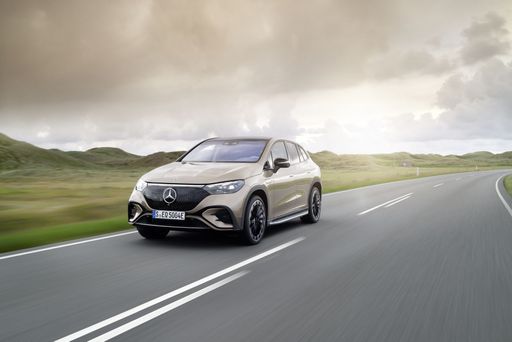
Mercedes EQE SUV
Costs and Consumption
View detailed analysis
Engine and Performance
View detailed analysis
Dimensions and Body
View detailed analysis
Mercedes EQE SUV
The Mercedes EQE SUV wraps silent electric power in a sumptuous, tech-filled shell, offering a cocoon-like cabin that makes long journeys feel indulgent. It’s not a driver's toy but a sophisticated cruiser for buyers who want luxury, space and futuristic gadgetry without shouting for attention.
details
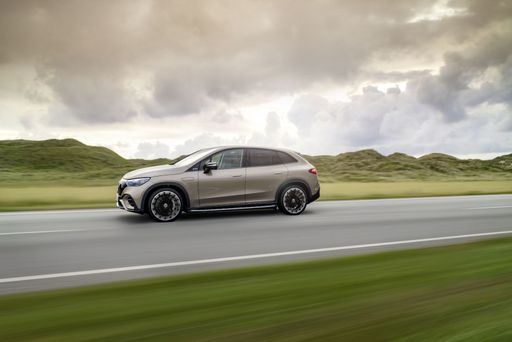

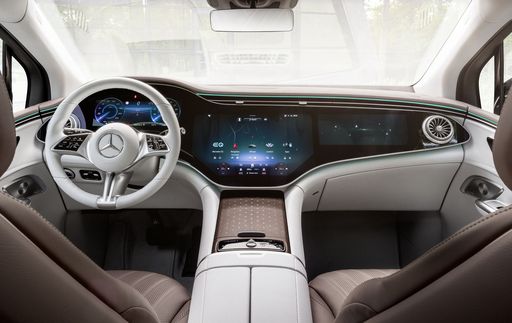
Volvo V90
The Volvo V90 blends Scandinavian elegance with estate practicality, delivering a composed ride and an interior that's both luxurious and perfectly sensible. Packed with clever storage and top-flight safety kit, it's the choice for buyers who want to look classy while hauling life's chaos — without making a fuss about it.
details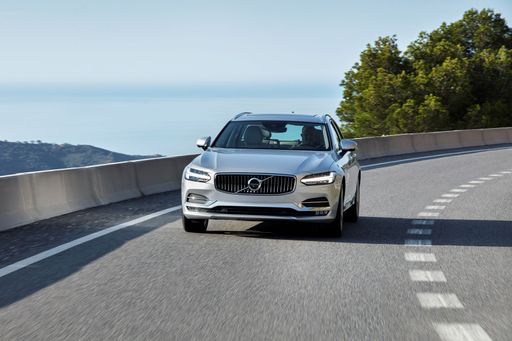
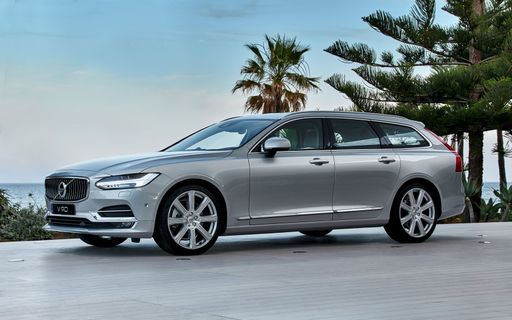
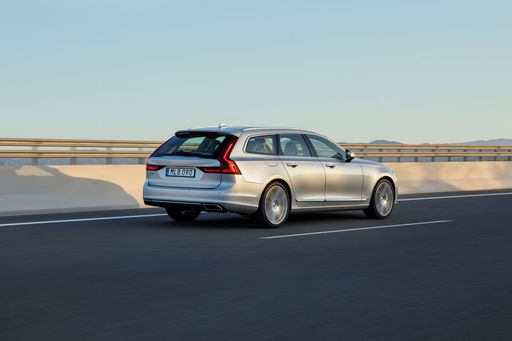
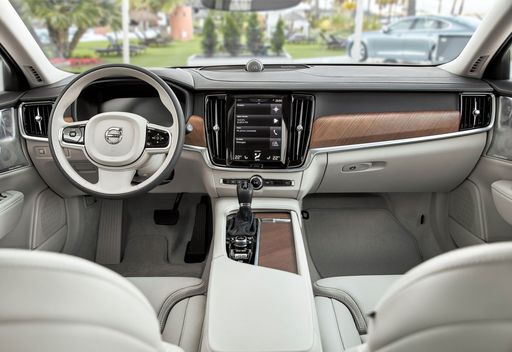
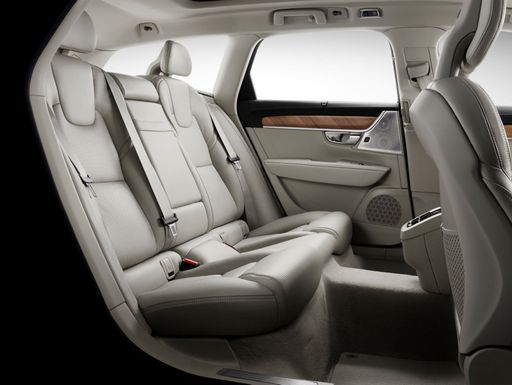

|

|
|
|
|
Costs and Consumption |
|
|---|---|
|
Price
71600 - 125100 £
|
Price
62300 - 71700 £
|
|
Consumption L/100km
-
|
Consumption L/100km
0.80 L
|
|
Consumption kWh/100km
18.3 - 23.1 kWh
|
Consumption kWh/100km
-
|
|
Electric Range
453 - 611 km
|
Electric Range
88 km
|
|
Battery Capacity
90.5 - 96 kWh
|
Battery Capacity
14.70 kWh
|
|
co2
0 g/km
|
co2
18 g/km
|
|
Fuel tank capacity
-
|
Fuel tank capacity
60 L
|
Dimensions and Body |
|
|---|---|
|
Body Type
SUV
|
Body Type
Estate
|
|
Seats
5
|
Seats
5
|
|
Doors
4
|
Doors
5
|
|
Curb weight
2440 - 2615 kg
|
Curb weight
2075 kg
|
|
Trunk capacity
520 L
|
Trunk capacity
488 L
|
|
Length
4863 - 4879 mm
|
Length
4945 mm
|
|
Width
1940 mm
|
Width
1879 mm
|
|
Height
1672 - 1685 mm
|
Height
1472 mm
|
|
Max trunk capacity
1675 L
|
Max trunk capacity
1454 L
|
|
Payload
505 - 580 kg
|
Payload
515 kg
|
Engine and Performance |
|
|---|---|
|
Engine Type
Electric
|
Engine Type
Plugin Hybrid
|
|
Transmission
Automatic
|
Transmission
Automatic
|
|
Transmission Detail
Reduction Gearbox
|
Transmission Detail
Automatic Gearbox
|
|
Drive Type
All-Wheel Drive, Rear-Wheel Drive
|
Drive Type
All-Wheel Drive
|
|
Power HP
265 - 625 HP
|
Power HP
398 - 455 HP
|
|
Acceleration 0-100km/h
3.7 - 7.1 s
|
Acceleration 0-100km/h
4.8 - 5.5 s
|
|
Max Speed
210 - 240 km/h
|
Max Speed
180 km/h
|
|
Torque
550 - 950 Nm
|
Torque
659 - 709 Nm
|
|
Number of Cylinders
-
|
Number of Cylinders
4
|
|
Power kW
195 - 460 kW
|
Power kW
293 - 335 kW
|
|
Engine capacity
-
|
Engine capacity
1969 cm3
|
General |
|
|---|---|
|
Model Year
2023 - 2025
|
Model Year
2024
|
|
CO2 Efficiency Class
A
|
CO2 Efficiency Class
B
|
|
Brand
Mercedes-Benz
|
Brand
Volvo
|
What drive types are available for the Mercedes EQE SUV?
Available configurations include All-Wheel Drive or Rear-Wheel Drive.
The prices and data displayed are estimates based on German list prices and may vary by country. This information is not legally binding.
